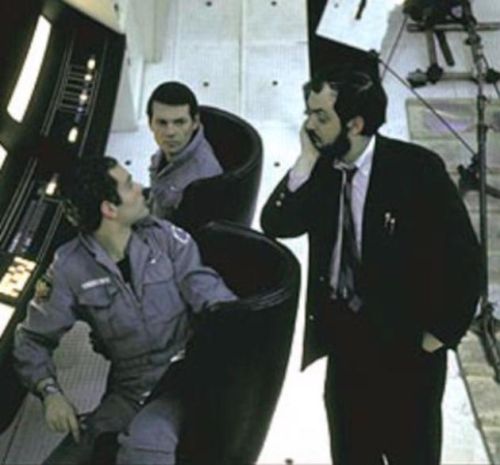Via Nicholas Carr’s blog, Rough Type, I came across “HAL, Mother, and Father,” Jason Z. Resnikoff’s Paris Review post about his father’s generation, who, in 1968, viewed Stanley Kubrick’s sci-fi future, even his rogue computer, with techno-optimism, a feeling that short-circuited within a decade. An excerpt:
2001 is the brainchild of Stanley Kubrick and Arthur C. Clarke, who intended the film as a vision of things that seemed destined to come. In large part this fact has been lost on more recent generations of viewers who regard the movie as almost entirely metaphorical. Not so. The film was supposed to describe events that were really about to happen—that’s why Kubrick and Clarke went to such lengths to make it realistic, dedicating months to researching the ins and outs of manned spaceflight. They were so successful that a report written in 2005 from NASA’s Scientific and Technical Information Program Office argues that 2001 is today still “perhaps the most thoroughly and accurately researched film in screen history with respect to aerospace engineering.” Kubrick shows the audience exactly how artificial gravity could be maintained in the endless free-fall of outer space; how long a message would take to reach Jupiter; how people would eat pureed carrots through a straw; how people would poop in zero G. Curious about extraterrestrial life, Kubrick consulted Carl Sagan (evidently an expert) and made changes to the script accordingly.
It’s especially ironic because anyone who sees the film today will be taken aback by how unrealistic it is. The U.S. is not waging the Cold War in outer space. We have no moon colonies, and our supercomputers are not nearly as super as the murderous HAL. Pan Am does not offer commercial flights into high-Earth orbit, not least because Pan-Am is no more. Based on the rate of inflation, a video-payphone call to a space station should, in theory, cost far more than $1.70, but that wouldn’t apply when the payphone is a thing of the past. More important, everything in 2001 looks new. From heavy capital to form-fitting turtlenecks—thank goodness, not the mass fashion phenomenon the film anticipated—it all looks like it was made yesterday. But despite all of that, when you see the movie today you see how 1968 wasn’t just about social and political reform; people thought they were about to evolve, to become something wholly new, a revolution at the deepest level of a person’s essence.•

